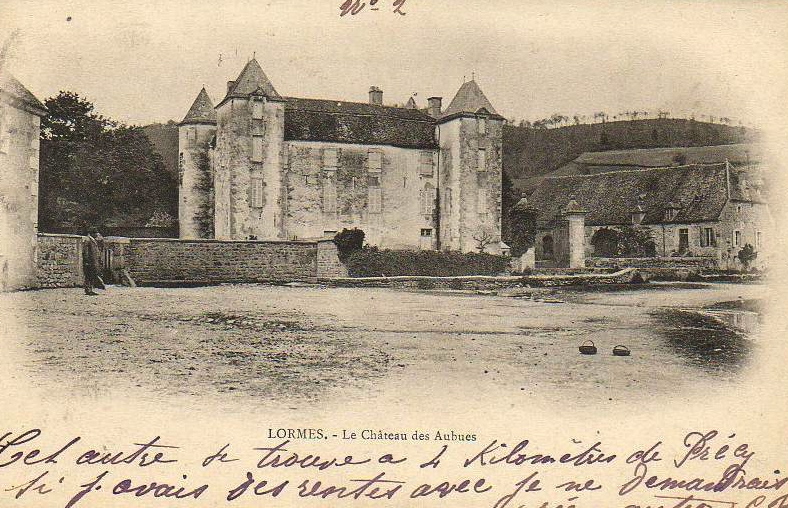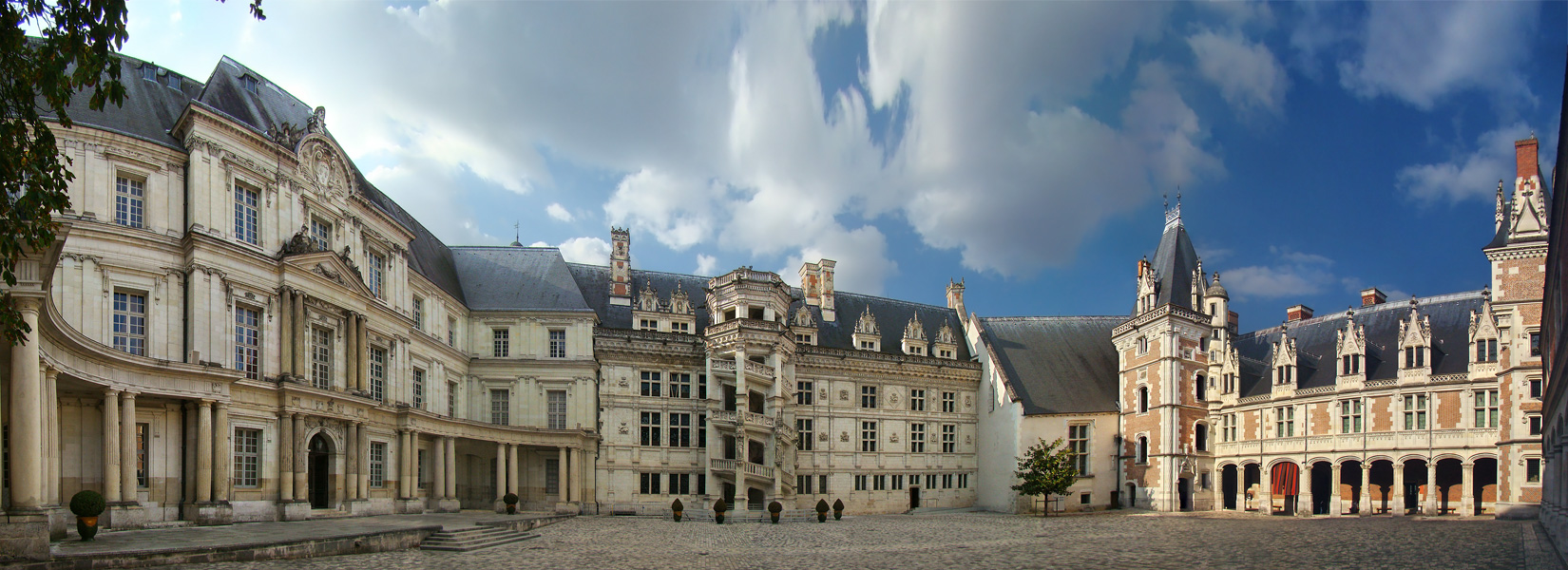|
Angélique Des Méloizes
Angélique des Méloizes (; December 11, 1722- December 1, 1792) was a Canadian socialite, and the politically influential mistress of François Bigot, Intendant of New France 1748-1760. She was the centre of high society in Quebec City. The daughter of Nicolas-Marie Renaud d'Avène des Méloizes and she was the granddaughter François-Marie Renaud d'Avène des Meloizes. Her mother was Françoise-Thérèse Dupont de Neuville, she was born in Quebec City. Des Méloizes was married to the adjutant of that city, Michel-Jean-Hugues Péan. She is known for her love affair with François Bigot, Intendant of New France 1748-1760, and for the influence over politics attributed to her during his tenure, for which she has been compared to Madame de Pompadour Jeanne Antoinette Poisson, Marquise de Pompadour (, ; 29 December 1721 – 15 April 1764), commonly known as Madame de Pompadour, was a member of the French court. She was the official chief mistress of King Louis XV from 1745 ... [...More Info...] [...Related Items...] OR: [Wikipedia] [Google] [Baidu] |
François Bigot
François Bigot (; born Bordeaux, 30 January 1703; died Neuchâtel, Switzerland, 12 January 1778) was a French government official. He served as the Financial Commissary on Île Royale (nowadays Cape Breton Island), commissary general of the ill-fated Duc d'Anville expedition and finally as the ''Intendant'' of New France. He was the last official ever to hold the last position, losing it on the occasion of the conquest of 1760. He was subsequently accused of corruption and put on trial in France, and upon conviction was thrown into the Bastille for eleven months. Upon his release, Bigot was further sentenced to lifelong banishment. However, shortly after the judgement was made, Bigot escaped to Switzerland where he would live until his dying day. Early life Bigot was born at Bordeaux into a family that had attained nobility. He was the son of Louis-Amable Bigot (1663-1743), Conseilleur du Roi, Counsellor to the Parliament at Bordeaux and Receiver General to the King; by his wi ... [...More Info...] [...Related Items...] OR: [Wikipedia] [Google] [Baidu] |
New France
New France (french: Nouvelle-France) was the area colonized by France in North America, beginning with the exploration of the Gulf of Saint Lawrence by Jacques Cartier in 1534 and ending with the cession of New France to Great Britain and Spain in 1763 under the Treaty of Paris. The vast territory of ''New France'' consisted of five colonies at its peak in 1712, each with its own administration: Canada, the most developed colony, was divided into the districts of Québec, Trois-Rivières, and Montréal; Hudson Bay; Acadie in the northeast; Plaisance on the island of Newfoundland; and Louisiane. It extended from Newfoundland to the Canadian Prairies and from Hudson Bay to the Gulf of Mexico, including all the Great Lakes of North America. In the 16th century, the lands were used primarily to draw from the wealth of natural resources such as furs through trade with the various indigenous peoples. In the seventeenth century, successful settlements began in Acadia and in Quebe ... [...More Info...] [...Related Items...] OR: [Wikipedia] [Google] [Baidu] |
Quebec City
Quebec City ( or ; french: Ville de Québec), officially Québec (), is the capital city of the Provinces and territories of Canada, Canadian province of Quebec. As of July 2021, the city had a population of 549,459, and the Communauté métropolitaine de Québec, metropolitan area had a population of 839,311. It is the eleventhList of the largest municipalities in Canada by population, -largest city and the seventhList of census metropolitan areas and agglomerations in Canada, -largest metropolitan area in Canada. It is also the List of towns in Quebec, second-largest city in the province after Montreal. It has a humid continental climate with warm summers coupled with cold and snowy winters. The Algonquian people had originally named the area , an Algonquin language, AlgonquinThe Algonquin language is a distinct language of the Algonquian languages, Algonquian language family, and is not a misspelling. word meaning "where the river narrows", because the Saint Lawrence River na ... [...More Info...] [...Related Items...] OR: [Wikipedia] [Google] [Baidu] |
François-Marie Renaud D'Avène Des Meloizes
Captain François-Marie Renaud d'Avène des Méloizes (1655 – April 22, 1699) was a French Cavalry officer who came to New France in 1685 in command of the Troupes de marine, Troupes de Marine and led the successful expedition against the Senecas. The Louis de Buade de Frontenac, Comte de Frontenac considered him "one of the best and wisest officers" in Canada. He is buried in the vaults of Notre-Dame Basilica-Cathedral (Quebec City), Notre-Dame Basilica-Cathedral, Quebec City. Early life Born at Château des Aubues, Lormes, Bourgogne; the ancestral home of his mother's family since the early fifteenth century. He was the son of Edmé Renaud d’Avène, Lord, Seigneur des Méloizes et de Berges. His mother, Adrienne de Montsaulnin, was the daughter of Colonel Adrien de Montsaulnin of Château des Aubues; Seigneur de Montal, Aubues and Sancy; by his wife Gabrielle de Bussy-Rabutin of Château de Bussy-Rabutin; Dame de Chantal and Montal. Renaud was a first cousin of Louis de Monts ... [...More Info...] [...Related Items...] OR: [Wikipedia] [Google] [Baidu] |
Adjutant
Adjutant is a military appointment given to an officer who assists the commanding officer with unit administration, mostly the management of human resources in an army unit. The term is used in French-speaking armed forces as a non-commissioned officer rank similar to a staff sergeant or warrant officer but is not equivalent to the role or appointment of an adjutant. An adjutant general is commander of an army's administrative services. Etymology Adjutant comes from the Latin ''adiutāns'', present participle of the verb ''adiūtāre'', frequentative form of ''adiuvāre'' 'to help'; the Romans actually used ''adiūtor'' for the noun. Military and paramilitary appointment In various uniformed hierarchies, the term is used for number of functions, but generally as a principal aide to a commanding officer. A regimental adjutant, garrison adjutant etc. is a staff officer who assists the commanding officer of a regiment, battalion or garrison in the details of regimental, g ... [...More Info...] [...Related Items...] OR: [Wikipedia] [Google] [Baidu] |
Madame De Pompadour
Jeanne Antoinette Poisson, Marquise de Pompadour (, ; 29 December 1721 – 15 April 1764), commonly known as Madame de Pompadour, was a member of the French court. She was the official chief mistress of King Louis XV from 1745 to 1751, and remained influential as court favourite until her death. Pompadour took charge of the king's schedule and was a valued aide and advisor, despite her frail health and many political enemies. She secured titles of nobility for herself and her relatives, and built a network of clients and supporters. She was particularly careful not to alienate the Queen, Marie Leszczyńska. On 8 February 1756, the Marquise de Pompadour was named as the thirteenth lady-in-waiting to the queen, a position considered the most prestigious at the court, which accorded her with honors. Pompadour was a major patron of architecture and decorative arts, especially porcelain. She was a patron of the ''philosophes'' of the Enlightenment, including Voltaire. Hostile crit ... [...More Info...] [...Related Items...] OR: [Wikipedia] [Google] [Baidu] |
Seven Years' War
The Seven Years' War (1756–1763) was a global conflict that involved most of the European Great Powers, and was fought primarily in Europe, the Americas, and Asia-Pacific. Other concurrent conflicts include the French and Indian War (1754–1763), the Carnatic Wars and the Anglo-Spanish War (1762–1763). The opposing alliances were led by Great Britain and France respectively, both seeking to establish global pre-eminence at the expense of the other. Along with Spain, France fought Britain both in Europe and overseas with land-based armies and naval forces, while Britain's ally Prussia sought territorial expansion in Europe and consolidation of its power. Long-standing colonial rivalries pitting Britain against France and Spain in North America and the West Indies were fought on a grand scale with consequential results. Prussia sought greater influence in the German states, while Austria wanted to regain Silesia, captured by Prussia in the previous war, and to contain Pruss ... [...More Info...] [...Related Items...] OR: [Wikipedia] [Google] [Baidu] |
Blois
Blois ( ; ) is a commune and the capital city of Loir-et-Cher department, in Centre-Val de Loire, France, on the banks of the lower Loire river between Orléans and Tours. With 45,898 inhabitants by 2019, Blois is the most populated city of the department, and the 4th of the region. Historically, the city was the capital of the county of Blois, created on 832 until its integration into the Royal domain in 1498, when Count Louis II of Orléans became King Louis XII of France. During the Renaissance, Blois was the official residence of the King of France. History Pre-history Since 2013, excavations have been conducted by French National Institute of Preventive Archaeological Research (''INRAP'' in French) in Vienne where they found evidence of "one or several camps of late Prehistory hunter-gatherers, who were also fishermen since fishing traps were found there.. ..They were ancestors of the famous Neolithic farmer-herders, who were present in current France around 6,000 BC ... [...More Info...] [...Related Items...] OR: [Wikipedia] [Google] [Baidu] |
People Of New France
A person ( : people) is a being that has certain capacities or attributes such as reason, morality, consciousness or self-consciousness, and being a part of a culturally established form of social relations such as kinship, ownership of property, or legal responsibility. The defining features of personhood and, consequently, what makes a person count as a person, differ widely among cultures and contexts. In addition to the question of personhood, of what makes a being count as a person to begin with, there are further questions about personal identity and self: both about what makes any particular person that particular person instead of another, and about what makes a person at one time the same person as they were or will be at another time despite any intervening changes. The plural form "people" is often used to refer to an entire nation or ethnic group (as in "a people"), and this was the original meaning of the word; it subsequently acquired its use as a plural form of per ... [...More Info...] [...Related Items...] OR: [Wikipedia] [Google] [Baidu] |
.jpg)




_1938.jpg)